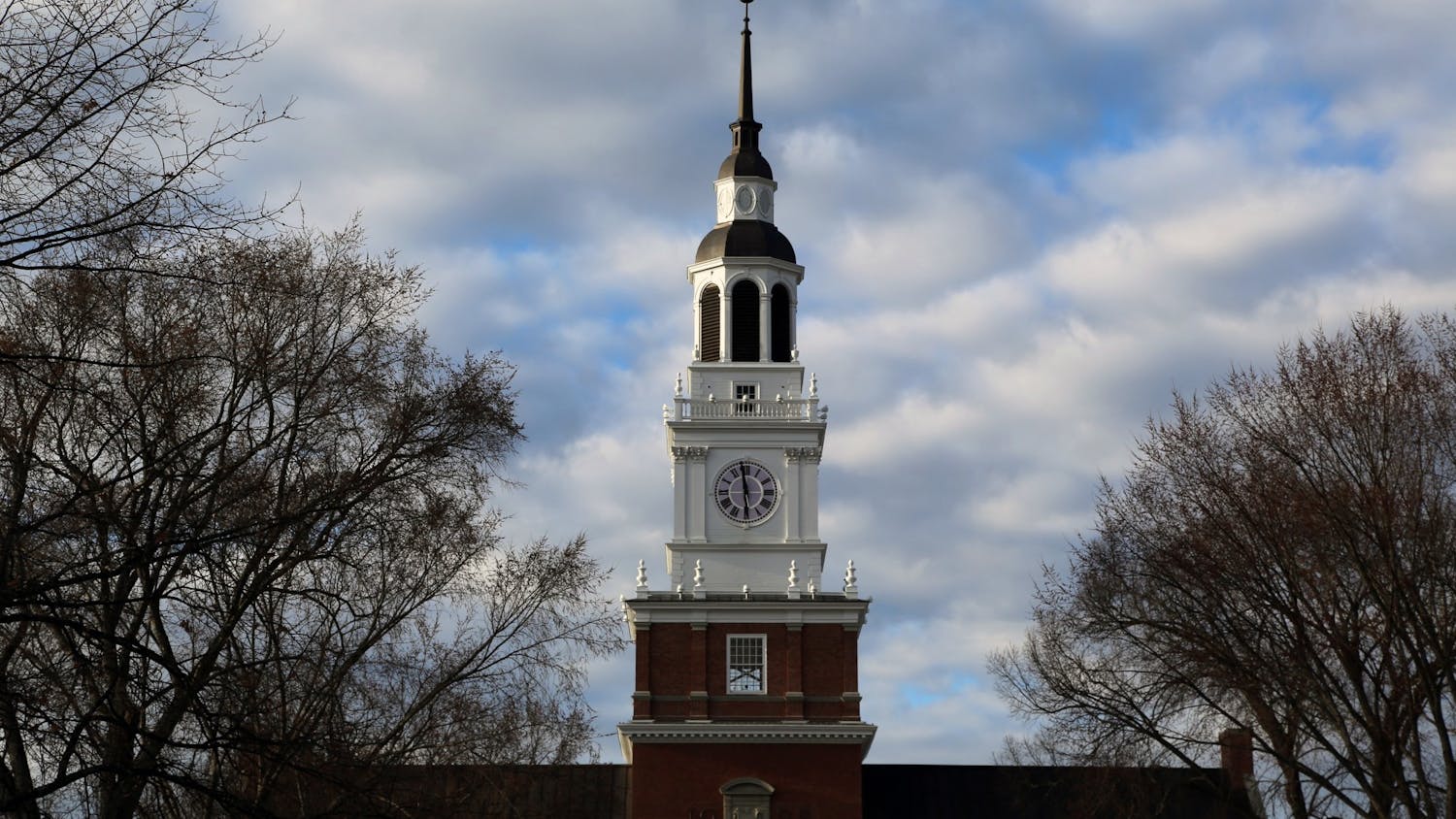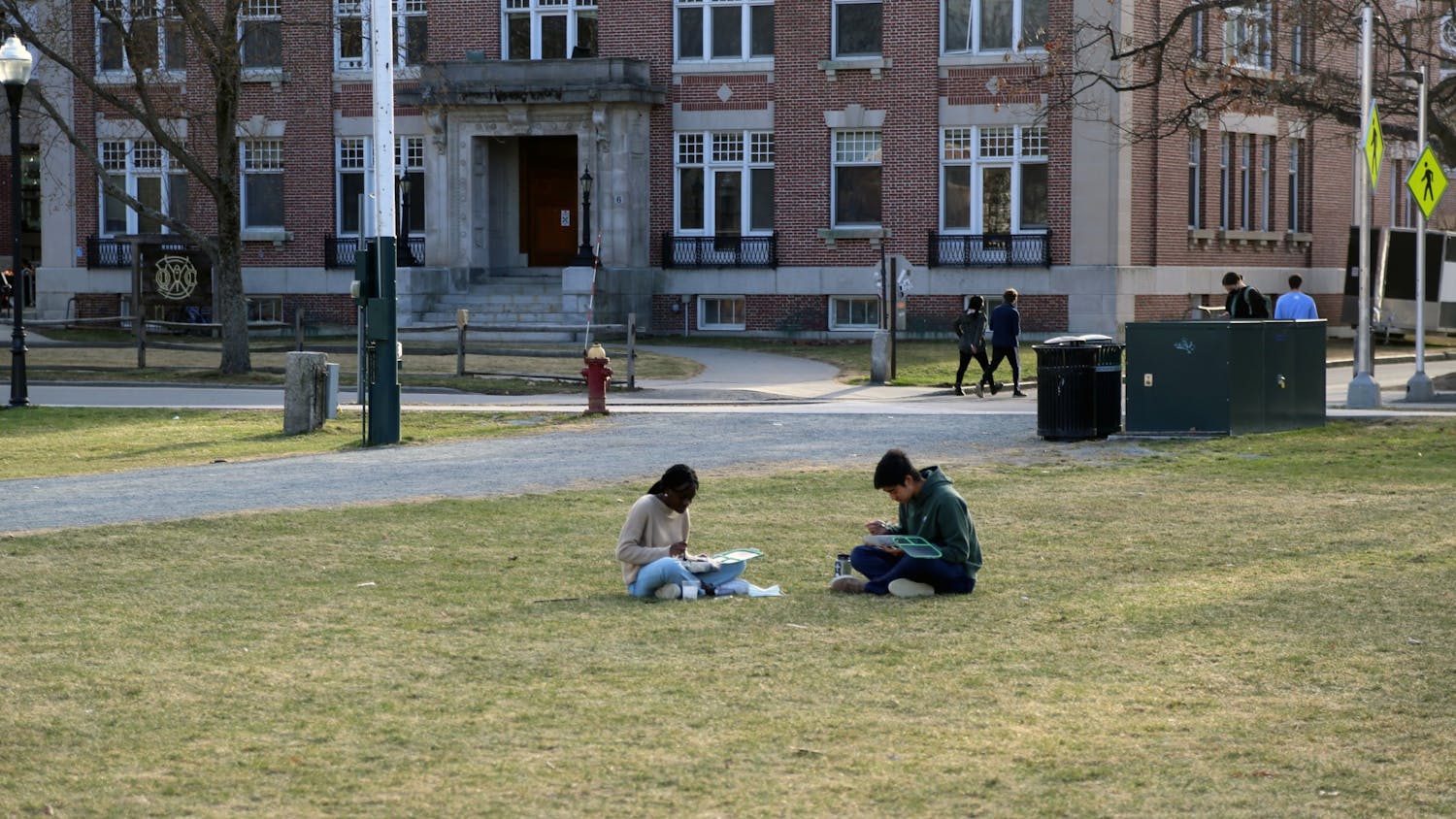For many Dartmouth students, the promise of becoming fully vaccinated in the near future lies within reach, but the hope of returning to normal life still does not. While the College has in the last week begun the process of easing some social distancing restrictions for vaccinated students, it has made no mention of loosening facility access restrictions either for fully or partially vaccinated students or for those who have previously contracted COVID-19. This should change: Dartmouth should extend limited on-campus access to some facilities to all students who are fully vaccinated, who have acquired immunity through previous infection with COVID-19 or who have received their first dose at least two weeks ago.
Now that New Hampshire Gov. Chris Sununu has reversed his initial decision to bar out-of-state students from receiving vaccinations and has made all individuals 16 and up eligible starting April 19, it is safe to say that more students will be getting the vaccine in a shorter time period than any of us thought possible. Additionally, anecdotes have piled up of some students — not all necessarily “residents” — being able to secure vaccination appointments and shots even before this April 19 date, either by signing up at sites far from Hanover — where Dartmouth students are less likely to attract scrutiny — or by presenting a lease and a payroll document with a Hinman address.
In light of the fast-moving recent developments around the vaccine, Dartmouth appears to have begun to recognize the need for adaptability. In a campus-wide update earlier this week, Dartmouth announced that students who are fully vaccinated may gather in groups of no more than nine in private, off-campus spaces without masks or social distancing. The email also confirmed that students enrolled in classes for spring term but not approved for on-campus access were eligible to join a randomized waitlist to gain access to campus facilities including the library and gym.
These moves are the right ones, but Dartmouth must go further. The existence of this waitlist process indicates that the College is clearly comfortable with some off-campus students accessing some facilities regardless of vaccination status. Dartmouth should follow the science and loosen restrictions on all those for whom it is definitively safe to do so: all students who are fully vaccinated, who have acquired immunity through previous infection with COVID-19 or who have received their first dose at least two weeks ago.
The fact of the matter is that certain restrictions simply don’t make sense for these three groups. According to the Centers for Disease Control and Prevention, the three vaccines authorized in the United States are extremely effective at protecting those who are vaccinated against symptomatic and severe COVID-19. Fully vaccinated individuals are also much less likely to have asymptomatic infections and transmit COVID-19. Crucially, even just one dose of the two-dose vaccines provides remarkable protection — last week, the CDC reported that the first dose of the Pfizer or Moderna vaccines is 80% effective at preventing infection after just two weeks.
In terms of those who have been infected with the virus, the CDC reports that those with COVID-19 antibodies may be protected from getting infected with the virus again, although it is unclear how much protection antibodies provide or how long that protection lasts. At this point — again according to the CDC — confirmed and suspected cases of reinfection have been reported but are very rare. Dartmouth acknowledges this: Those who have been infected with COVID-19 in the past 90 days are exempt from surveillance testing.
Some may argue that there is no real urgent reason for students to be given access to campus facilities. This is incorrect. Student researchers not approved for on-campus living are unable to conduct research in campus labs, for example, even if they are vaccinated. This becomes a problem for juniors and seniors in particular, who may need access to labs to complete work on their theses and other important projects. Athletes have not consistently been allowed to practice with their teams or use athletic facilities to train if they are not approved to be on campus, putting them at a disadvantage. Students not falling into either of these groups are also negatively affected by the College’s policies — for instance, students without on-campus access cannot even access GreenPrint to print readings for their classes, and no effort has been made to make printers accessible for off-campus students. Moreover, the library and gym are critical resources for students and should be available to anyone in the three safe groups.
The Dartmouth, we should add, has also been hamstrung by these restrictions. Our editors this term lack access to our offices in Robinson Hall — despite multiple attempts to secure it — and thus are virtually unable to publish print versions of the paper. Until restrictions are lifted, The Dartmouth may operate from an alternative location off campus or continue to publish solely remotely. Putting aside the fact that other businesses leasing space in College-owned buildings have been allowed to operate unencumbered, it is a shame that the only independent source of Dartmouth news for students, alumni and community members is being effectively kicked off of campus due solely to administrators’ refusal to act.
There are certainly barriers to Dartmouth’s ability to loosen restrictions, including the need to continue to enforce common-sense regulations on masking and social distancing in common spaces while large populations remain unvaccinated. Dartmouth should not allow unfettered access to all facilities for these groups, nor should it let up on testing, masking or gathering limits. But modest changes for largely protected students are reasonable. If they are not immediately feasible, the College should communicate a clear timeline for decision-making on restrictions — uncertainty dampens spirits and makes it difficult for students to make decisions on classes, housing and employment opportunities.
At the end of the day, with the vast majority of the Dartmouth community likely to receive at least a first dose of vaccine in the coming weeks, it has become clear that the circumstances regarding vaccinations have changed remarkably. Dartmouth should revisit its policies accordingly.
The editorial board consists of opinion staff columnists, the opinion editors, the executive editors and the editor-in-chief.



